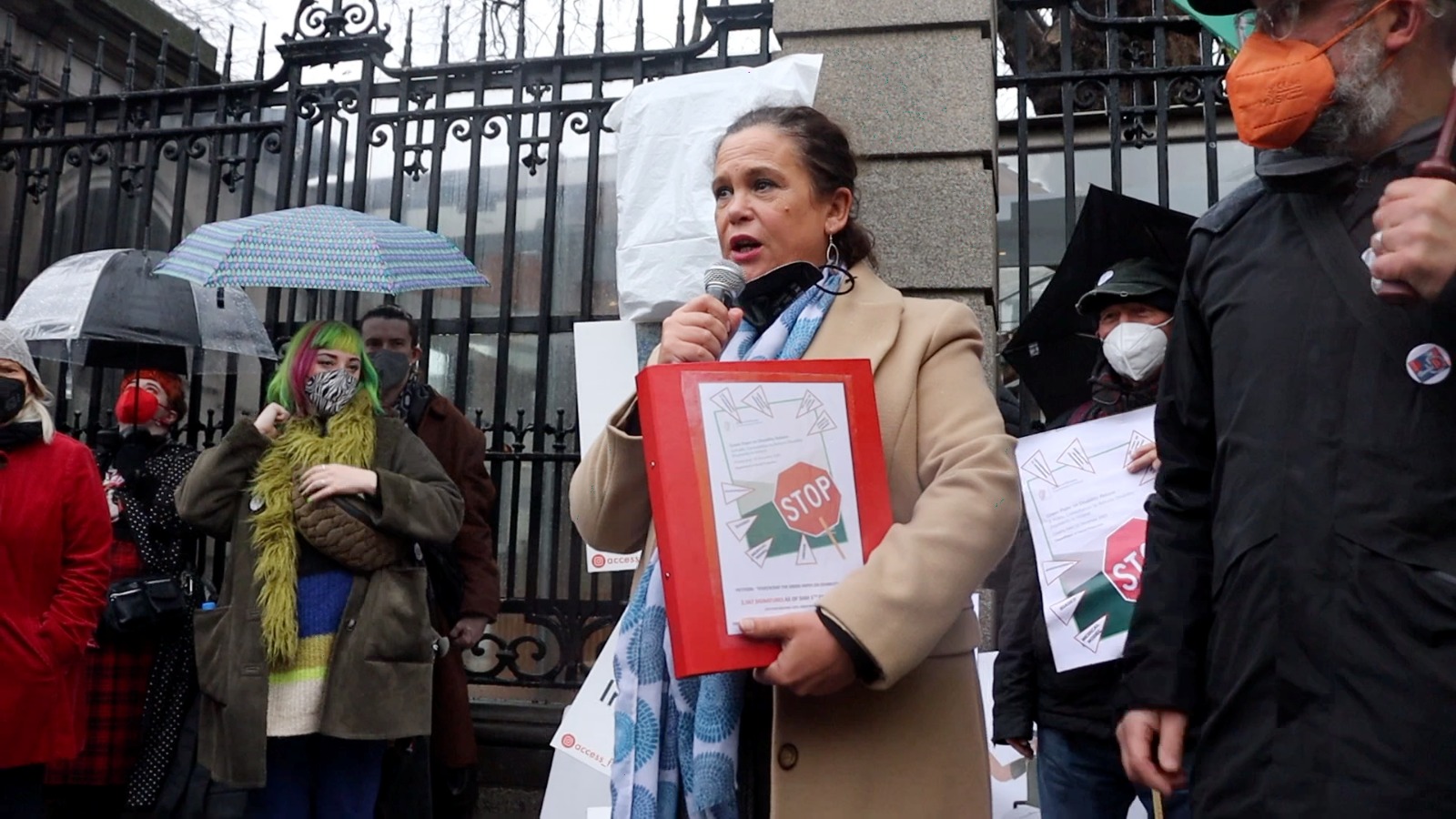At the fifth Trinity College Dublin Students’ Union (TCDSU) council of the year on Tuesday, February 6th, a motion to oppose the government’s Green Paper on Disability Reform shone a spotlight on the potential repercussions of the proposed reforms. TCDSU is one of 20 groups to have joined the ‘Scrap the Green Paper’ coalition, which calls upon the Department of Social Protection to reconsider the reforms in light of the scrutiny they have received.
The goal of the Green Paper, a document designed to encourage public consultation on the restructuring of long-term disability payments, is ostensibly to “encourage a higher level of employment for people with disabilities”, and “to better insulate disabled people who cannot work from poverty and deprivation”. The proposed reforms would remodel the structure of disability payments to establish a three-tiered system to assess eligibility for disability payments, and to standardise the approach to supporting people with disabilities “with regard to access, assessment, payment rates and employment supports”.
However, critics of the proposed reforms have described the planned categorisation of disabled people into different tiers as “dehumanising”, and pointed to the existence of disabilities where one’s capacity to work fluctuates over time. The University Times spoke to voices from various quarters of the disability advocacy sphere to understand the implications of the Green Paper as the fate of these reforms hangs in the balance.
At the fifth council, which took the form of a town hall, Disabilities Officer Keely Jenkinson called the Green Paper “a carbon copy of the Tory policy” of work capability assessments introduced under austerity that led to an increase in disabled poverty and death. TCDSU President Lászlo Molnárfi, who proposed the motion to enshrine the Union’s opposition to the Green Paper, said that it sees “people with disabilities in an economic way”, and the motion further claimed that the Green Paper breached Article 33.3 of the United Nations Convention on the Rights of Persons with Disabilities in its failure to consult disabled individuals on the proposed reforms.
Amy O’Keeffe, the chair of Trinity’s Ability Co_op, a collaborative initiative between students and staff that works towards improving inclusivity on campus, told The University Times that “the potential impact of the suggested reforms give a general feeling of anxiety and fear to disabled people in the country, whether they are receiving a payment or not”.
O’Keeffe highlighted the language used in the Green Paper as reinforcing an economic model of disability that focuses on increasing participation in the workforce rather than improving supports. She said that while the Co_op commended the idea of an initiative to alleviate disabled poverty and to provide support for disabled people who wish to pursue employment, the proposed reforms and the language used were “troubling and disappointing”.
She corroborated the Union’s belief that the voices of disabled individuals must be central to any meaningful reform efforts, arguing that “the drafting of this paper would also suggest that no meaningful dialogue was engaged in with the disabled people who will be directly affected by these measures”. She said that the lack of direct engagement was in conflict with the European Commission’s Strategy for the Rights of Persons with Disabilities, which prioritises, among other things, autonomy and community inclusion.
The views of the Co_op were echoed by Elle Garvey, the Policy Officer for Disability Power Ireland (DPI). The grassroots organisation were part of the organising team behind the ‘Scrap the Green Paper’ coalition. Garvey said the Green Paper would not achieve either of its proposed goals of reducing poverty or increasing employment for people with disabilities. She said that the Green Paper instead “puts the onus on disabled people to seek employment, rather than addressing actual barriers to employment, such as the accessibility of public transportation and buildings, assistive technology in the workplace, flexible working hours, providing disability education and training for businesses and expanding schemes and incentives for workplaces to hire and provide accessible resources for disabled employees”.
She too expressed concern at the lack of consultation with disabled people or disability organisations at the development stage, stating: “The proposed changes are in direct opposition to the lived experience of disabled people and international and national evidence and best-practice guidelines”. She said that DPI were “extremely disappointed” by the government’s approach, calling the proposed Green Paper “a step backwards rather than forwards”.
Public consultation on the Green Paper will close on March 15th. The deadline was extended by Heather Humphries, the Minister for Social Protection, due to the controversy surrounding the proposed reforms.








